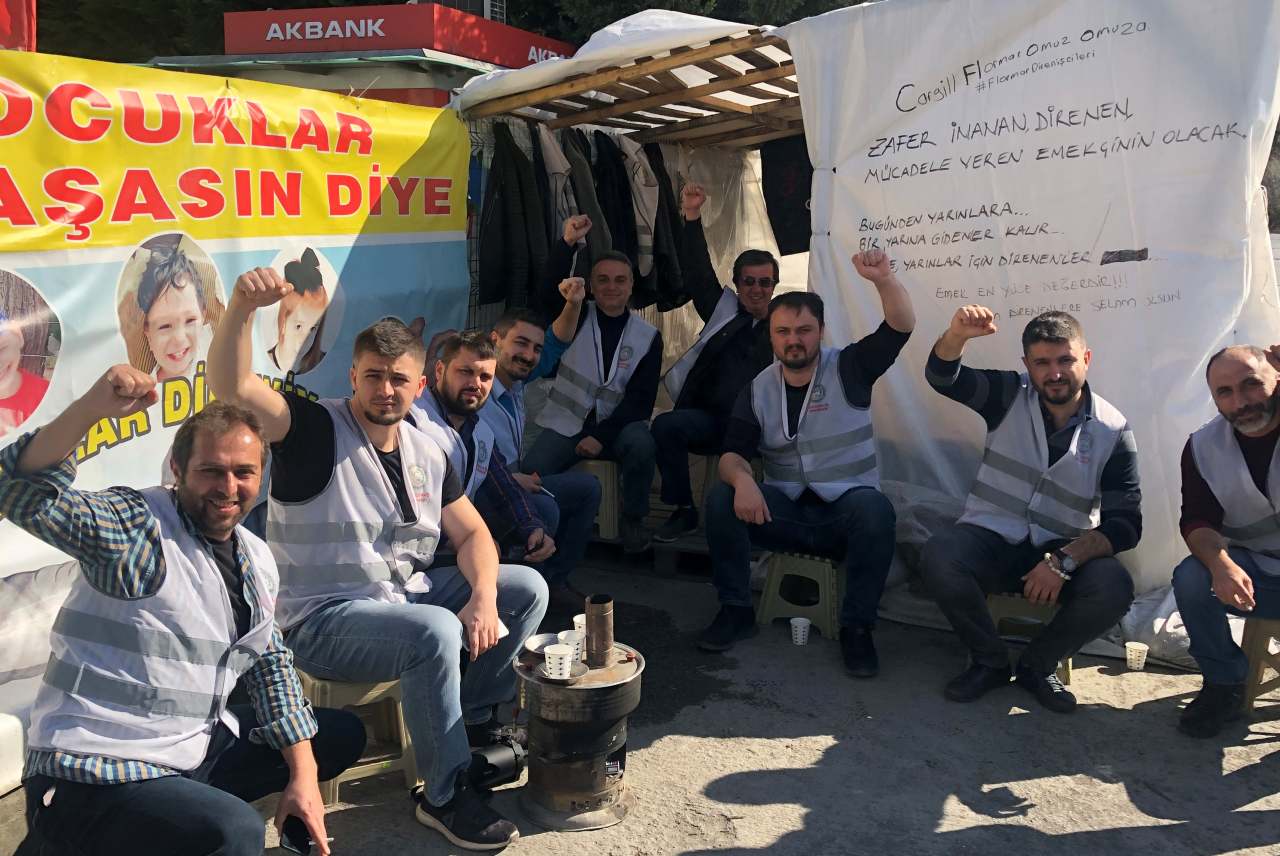Cargill is a giant US corporation turning over $114 billion in 2020. It employs 155,000 workers in over 70 countries. It operates in the meat and poultry industry, as well as food, beverage, primary commodity trading and processing, and financial services.
One of its products can be found on the shelves of most UK supermarkets – Truvia stevia-based sweeteners. Truvia is marketed in the UK by Silver Spoon.
Unions across the world, many of which are affiliated to the IUF (the global union federation for food, beverage and hospitality unions), have collective bargaining agreements with Cargill.
At Cargill Turkey, however, the company has made it clear that it does not want workers to unionise. In 2015, 2018 and 2020, Turkey’s highest-level courts ruled that Cargill Turkey had dismissed workers due to being active union members, and the courts have called on Cargill to reinstate the dismissed workers. Yet Cargill remains in denial and has recently misled the UN Special Rapporteur about the facts.
Situation in Turkey
The most recent firings at Cargill's starch factory in Bursa-Orhangazi, Turkey, concern 14 blue collar production workers. These workers were dismissed in 2018 while exercising their fundamental right to organise a union. In 2019 and 2020, the local District Court issued final and unappealable verdicts for all 12 of the dismissed workers who took their case to court. The Court confirmed that eight of these workers were dismissed due to their union activity. The other four, according to the Court, were unfairly dismissed, because there was no economic justification for their dismissals and Cargill had failed to offer them alternative work in the company. All 12 verdicts ordered reinstatement.
Turkey has ratified the UN’s International Labour Organization (ILO) Conventions on the right to organise and collectively bargain, and protecting freedom of association: 87 (Freedom of Association and Protection of the Right to Organise) and 98 (Right to Organise and Collective Bargaining).
However, some aspects of Turkish laws and practices do not conform to these conventions, and so enable companies the option, at their discretion, to pay compensation in lieu of reinstatement in cases of anti-union dismissal, even when reinstatement is ordered by the courts.
Cargill has opted to pay compensation in each case, despite how ILO Jurisprudence instead prescribes reinstatement as the remedy for anti-union dismissal within companies.
“The Court confirmed workers were dismissed solely for their union activity.”






